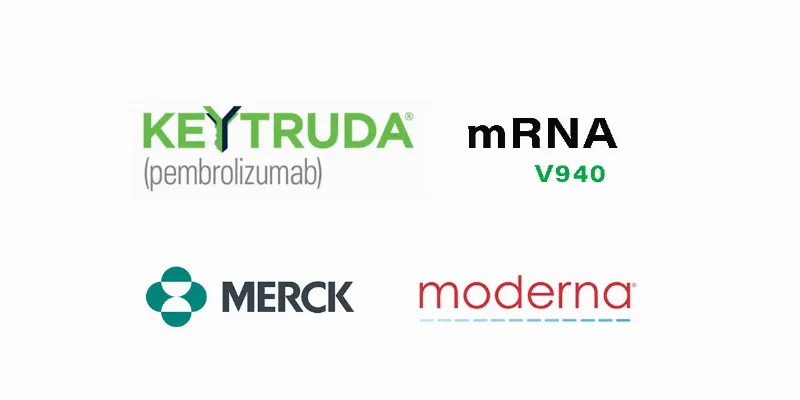KEYTRUDA Combo Show Promise in Melanoma Treatment, Reducing Death Risks by 49%

14 December 2023
In a groundbreaking Phase IIb study, a combination of Moderna's mRNA vaccine and Merck's Keytruda significantly improved outcomes in high-risk melanoma patients post-surgery. After three years, this duo reduced recurrence or death risks by 49% and distant metastasis or death by 62% compared to Keytruda alone.
Moderna and Merck have announced positive results from the KEYNOTE-942 Phase 2b study. This study reveals that their therapy, which combines mRNA-4157 (V940) with Keytruda, significantly reduces the risks of recurrence and metastasis in high-risk stage III/IV melanoma patients post-surgery. This combination of tailored mRNA technology and immunotherapy represents a critical advancement in personalized cancer treatment, setting the stage for Phase 3 studies and the potential expansion to other cancer types.
“As we continue to follow participants in the KEYNOTE-942/mRNA-4157-P201 study, we are excited to see such a robust clinical benefit with mRNA-4157 (V940) as adjuvant treatment in combination with KEYTRUDA in people with resected high-risk melanoma. These data add another positive analysis to the multiple endpoints and subgroups previously assessed in this study,” said Dr. Kyle Holen, M.D., Moderna’s Senior Vice President and Head of Development, Oncology.
A Closer Look at the Study and Its Findings
At the heart of this advancement is the Phase 2b KEYNOTE-942/mRNA-4157-P201 study. This trial, focusing on patients who underwent complete resection for high-risk stage III/IV melanoma, revealed that the combination of mRNA-4157 with Keytruda markedly reduced the risk of recurrence or death by 49% and the risk of distant metastasis or death by 62%. These figures, compared to the use of Keytruda alone, represent a significant leap in melanoma therapy.
“We are committed to driving research forward for innovative modalities in earlier stages of cancer, where we can make the most meaningful impact for patients, by combining Merck’s expertise in immuno-oncology with Moderna’s innovative mRNA technology,” said Dr. Marjorie Green, SVP and Head of late-stage oncology, Merck. “We are pleased to see the results from these planned analyses on recurrence-free survival for V940 and look forward to working with Moderna in expanding our clinical development program for the individualized neoantigen therapy.”
Understanding mRNA-4157 (V940)
mRNA-4157, an investigational individualized neoantigen therapy (INT), works by targeting unique mutations in each patient's tumor, creating a tailored approach to cancer treatment. This methodology, combined with Keytruda , an established anti-PD-1 therapy, enhances the body's immune response against cancer cells.
Safety Profile and Regulatory Milestones
The safety profile of mRNA-4157 in combination with Keytruda has been consistent, with similar rates of treatment-related adverse events compared to Keytruda alone. The most common adverse events include fatigue, injection site pain, and chills. These findings have led to the FDA and EMA granting Breakthrough Therapy Designation and Priority Medicines scheme for this combination in the treatment of high-risk melanoma.
The partnership between Moderna and Merck, demonstrated through their mRNA-4157 and Keytruda combination, highlights the promise of personalized and targeted cancer treatments. This significant advancement provides newfound hope for patients confronting melanoma, characterized by its aggressive nature and propensity for recurrence.
About mRNA-4157 (V940)
mRNA-4157 (V940) represents a cutting-edge approach in cancer treatment, functioning as an individualized neoantigen therapy (INT). It's tailored to each patient, utilizing synthetic mRNA to encode up to 34 neoantigens derived from the unique mutational profile of their tumor. This personalized method ensures the body's immune system is specifically trained and activated to combat cancer, fostering a targeted T-cell response against the tumor. When used in conjunction with KEYTRUDA, an immunotherapy that bolsters the immune system's ability to detect and fight tumor cells, mRNA-4157 has shown significant efficacy in improving outcomes for patients with high-risk stage III/IV melanoma, as evidenced in the KEYNOTE-942/mRNA-4157-P201 trial.











Comments
No Comments Yet!